Photo
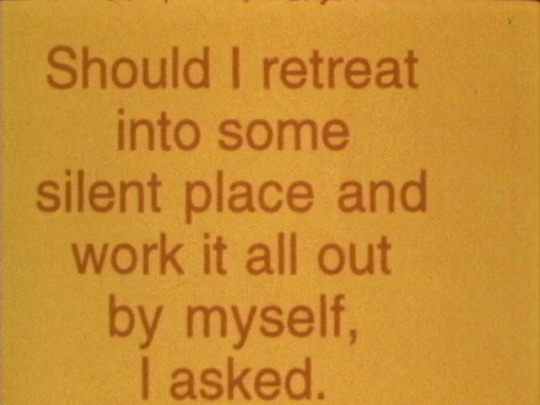

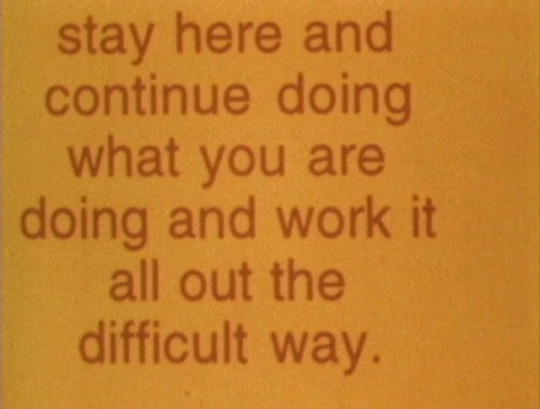
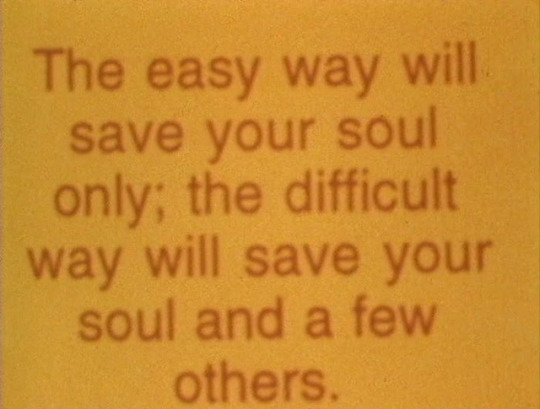
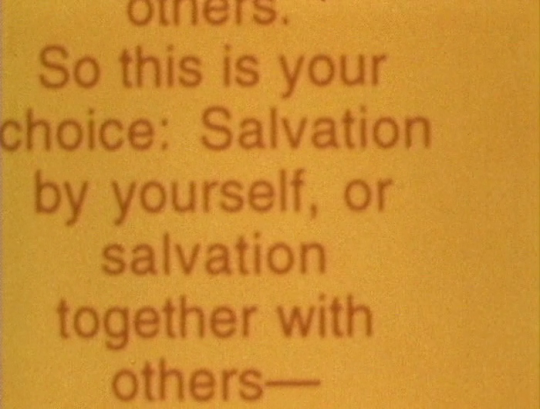
As I Was Moving Ahead Occasionally I Saw Brief Glimpses of Beauty, dir. Jonas Mekas, 2000.
44K notes
·
View notes
Text
*examines your pdf folder* have you read them all?
28K notes
·
View notes
Text

Franny Choi, from “Catastrophe is Next to Godliness”
17K notes
·
View notes
Text
nothing funnier than a poem translated by someone who seems to hate it. You really can translate things in a way that is correct but uncharitable in a way only obvious to someone who speaks both languages well. Like the opposite of those translators who make things sound more profound and original than they are by using some degree of literal translation so it goes from pedestrian use of language in the original to what seems like a very original way of thinking about/expressing things.
211 notes
·
View notes
Text
read literature. be present. make love. make tea. write a poem. cry. watch a sappy movie that makes you want to throw things at it. paint your nails. cook something. call your best friend. learn an instrument. wonder. take a bath. go for a walk. lie down on the grass. listen to the entirety of ur favorite album from 2016. take pics of sunsets. ponder. shamelessly dance in your room. curl up on your bed. make endless wishes to the stars twinkling in the midnight sky. think about nothing. think about everything. think about things so hard that you barely remember what happened moments ago and why you’re feeling the way you do
17K notes
·
View notes
Text
I think with the reaction to the Ursula K. Quote about women being able to think, not just feel blindly, fits nicely into the anti intellectualism we are seeing and peoples commitment to staying in the kiddie pool. Like at a certain point you can’t vibes your way out of stuff, you gotta pick up books and a news paper and get informed and start exercising your brain.
9K notes
·
View notes
Photo
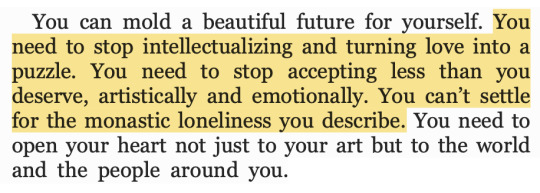
Heather Havrilesky, How to Be a Person in the World
39K notes
·
View notes
Text
Posting only a snippet to protect the person's identity and because I don't want to attack them personally but comment on the many similar opinions I have seen:

[ID: a screenshot of a tumblr post reading "Don't get me wrong. But translating a poem loses it's meaning and soul."]
No one is as aware of translation loss as translators themselves. No one is as aware of translation gains as translators themselves either.
On tumblr, there are many posts about how reading something in translation "can't make you grasp the original" or how subtitles or dubs are "inaccurate". This is incredibly unkind to translators who work very hard and usually get paid very little to make books or audiovisual media accessible to you at all (not even to mention all the other areas of translation you're not even aware of).
Of course, some translators make mistakes. But writers make typos too and some make it into published books. Of course, there are cases of manipulation or censorship, I wrote my thesis on this, but more often than not these cases were caused by outside forces not the translators themselves. There are bad translations like there are bad novels or films.
I want more people to think of translation as a creative process that has nearly infinite strategies and choices. Translations differ because they are made by humans. They differ because there are as many ways to translate something as there are to write something. A translation will always necessarily differ from its source because, and it sounds really silly saying this out loud, it's in a different language. And at the same time, the translator is in a constant dialogue with the author and audience, trying to bridge a gap between them.
Translation is not meaningless and not soulless. It adds to the original the soul of the translator.
3K notes
·
View notes
Text


{Words by Charles Bukowski/ Mary Oliver from invitation}
17K notes
·
View notes
Photo
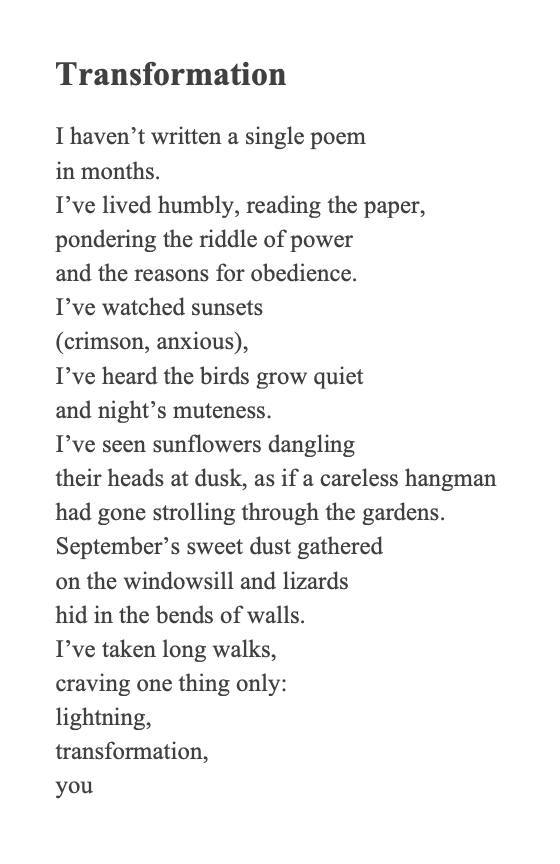
Adam Zagajewski (translated by Clare Cavanagh
725 notes
·
View notes
Text
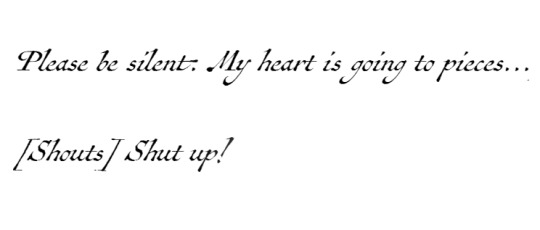
Anton Chekhov, from The Complete Plays of Anton Chekhov; "The Proposal,"
164 notes
·
View notes
Text
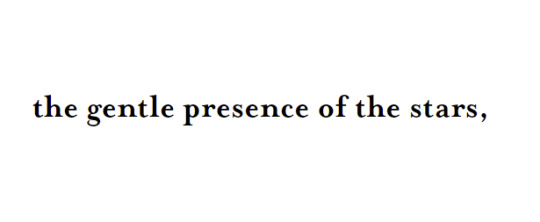
Rainer Maria Rilke, from Where Silence Reigns: Selected Prose; "An Experience,"
9K notes
·
View notes
Text
thinking about jeff buckley being asked, "how do you want to be remembered?" and answering with, "as a good friend."
13K notes
·
View notes
Text
If there's any character in this world who suffers from literary Ken-ification it's Patroclus. Especially in the zeitgeist of today (thanks tsoa), it's always Achilles AND Patroclus, never just Patroclus. Who is he? Why does he exist? He is Achilles' boyfriend! What's his job? Death! In the sense that he just. Dies. That's just his job now. Death. Death and Achilles' boyfriend. That's it.
26K notes
·
View notes
Text
“The secret of blue is well kept. Blue comes from far away. On its way, it hardens and changes into a mountain. The cicada works at it. The birds assist. In reality, one doesn’t know….The mystery of sapphire, mystery of Sainte Vierge, mystery of the siphon, mystery of the sailor’s collar, mystery of the blue rays that blind and your blue eye which goes through my heart.”
— Jean Cocteau, from “The Secret of Blue”
“Blue makes no noise. It is a shy colour, without ulterior motives, forewarning or plan; it does not leap out abruptly at the eye like yellow or red, but draws it in, tames it little by little, lets it come unhurriedly, so that it sinks in and drowns, unaware.”
— Jean-Michel Maulpoix, A Matter of Blue: Poems
“Blue still brings a principle of darkness with it. This colour has a peculiar and almost indescribable effect on the eye. As a hue it is powerful but it is on the negative side, and in its highest purity is, as it were, a stimulating negation.”
— Goethe, Theory of Colours
“Blue has no dimensions, it is beyond dimensions, whereas the other colours are not. They are pre-psychological expanses, red, for example, presupposing a site radiating heat…All colours arouse specific associative ideas, psychologically material or tangible, while blue suggests at most the sea and sky, and they, after all, are in actual, visible nature what is most abstract.”
— Yves Klein, Selected Writings
“For many years, I have been moved by the blue at the far edge of what can be seen, that color of horizons, of remote mountain ranges, of anything far away. The color of that distance is the color of an emotion, the color of solitude and of desire, the color of there seen from here, the color of where you are not. And the color of where you can never go.”
— Rebecca Solnit, A Field Guide to Getting Lost
2K notes
·
View notes
Text
“The way Rilke describes colours — their intercourse within a painting, a single colour’s evolution through history — that’s how one might also describe words: their interaction and interplay within a poem, a single word’s history from one age to another, punctuated by contributions of individual authors. His eyes trained by Cézanne, Rilke reaches out to language for words that would express the nuances of colour, and the biography of blue spills out into the realm of language: a barely-blue, a blue dove-gray, a densely quilted blue, an ancient Egyptian shadow-blue, a waxy blue, a self-contained blue, a wet dark blue, a listening blue, a thunderstorm blue, a bourgeois cotton blue, a light cloudy bluishness, a juicy blue, and, in van Gogh’s landscapes, full of revolt, Blue, Blue, Blue.”
Elena Maslova-Levin, ‘Rainer Maria Rilke on Colour and Self-Awareness’
576 notes
·
View notes
